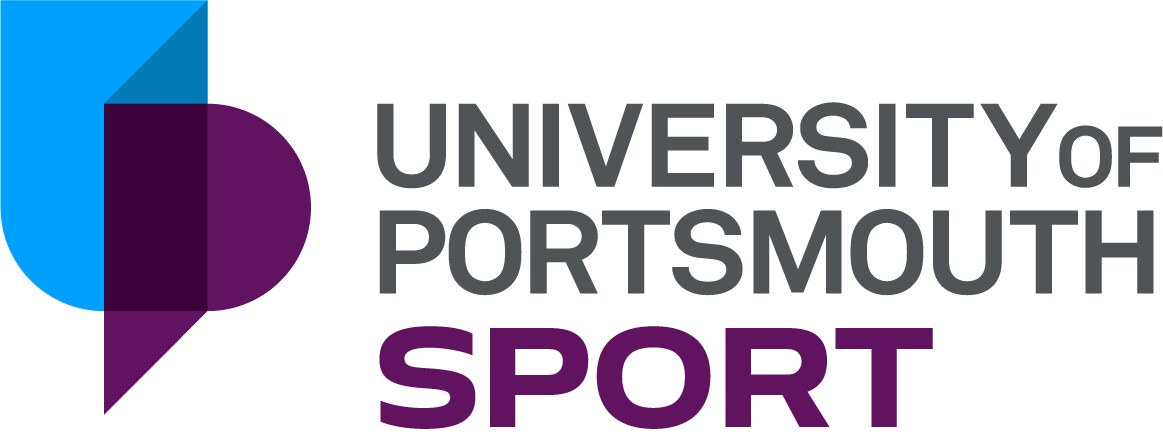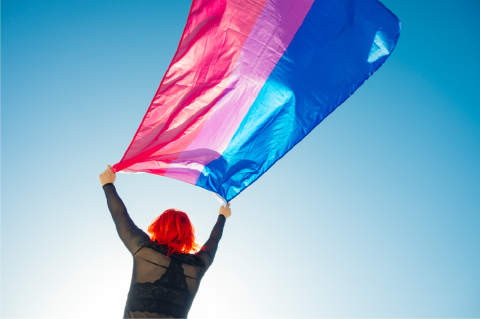

An anonymous story on playing rugby, bisexuality and not being afraid to be yourself
Our We Care About Not Caring Campaign continues with stories from Team UOP members. This campaign aims to provide insight into the lives and experiences of members of the LGBTQIA+ community. These honest and frank stories are an example of how sport and physical activity can play a part in providing a sense of belonging and combatting feelings of anxiety. We want to raise awareness for these stories and of the issues they look to challenge. These personal stories are powerful and should start up conversations between you and your friends, family, and teammates. We have also supplied a number of resources below if you are affected by this story.
Tell us about you...
I realised I was bisexual when I was about 11, when I had just started secondary school and joined the rugby team. I also realised I had a love for sport at that age, but at the time I had also learnt that these two entities were in conflict with one another especially as a young boy growing up in London. I honestly really struggled with this as it was fairly normal to have casual homophobia thrown around the changing room and people use 'gay' as an insult. Thankfully, I'm now way more comfortable and confident in myself than I have ever been. Even though I still have work to do to able to feel confident enough to come out, I know that the environment in sport is considerably more accepting and able to understand the nuances in sexuality (i.e. bisexual people aren't just denying that they're gay), and I hope more people would feel comfortable being fully open about themselves, including myself.
Have you ever felt or experienced a negative situation due to your sexuality/gender identity within your sport? How did the people around react?
Yes, I've had people I trusted start to spread it around about me and I had to deny it out of fear. I've also experienced physical and verbal abuse in my own house in my first year because of my sexuality, which pushed me to live by myself in second year (incidentally, at the height of the pandemic). As a result, when I started working in Portsmouth I was really quiet and kept to myself which is unlike the person I know I was because I was afraid of what might happen if I told people again.
What do you think Team UoP clubs and members can do better to make their LGBTQIA+ and transgender teammates feel safer within their sport?
I think there should be an LGBT or EDI representative for Team UoP, that can at least understand and support these teammates feel safer and more able to be open in their sport
If you could meet your younger self what advice would you give yourself?
Always be yourself, people actually like you for it.
We Care About Not Caring because...
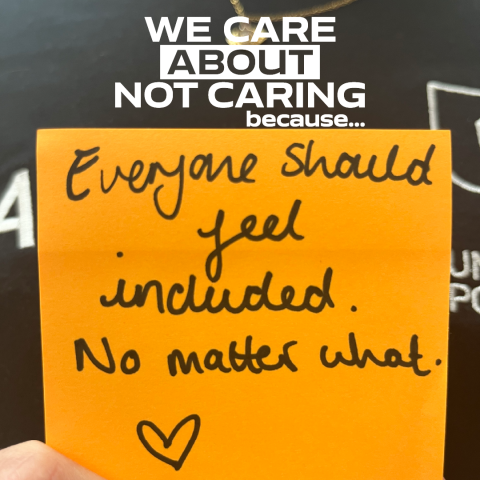
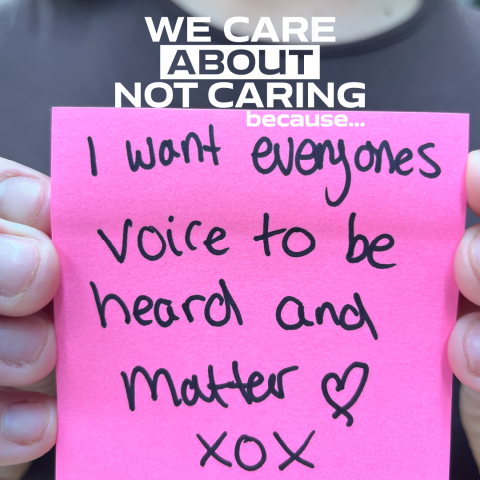
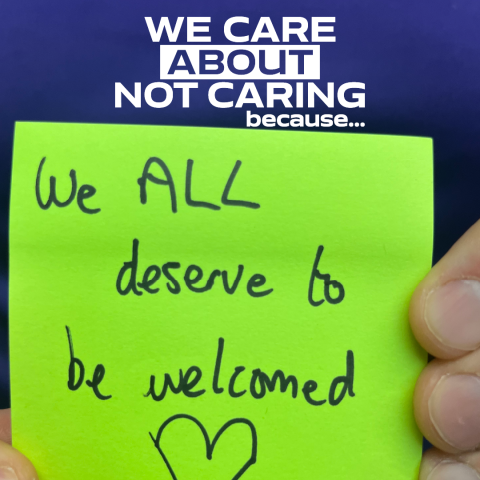
Education/Signposting About LGBTQIA+ Mental Health
Some of us identify as LGBTQIA+. This means we may be lesbian, gay, bisexual, transgender, queer, questioning, intersex, or asexual. Or we may define our gender and sexuality in other ways. Stonewall's glossary lists many more terms.
Anyone can experience a mental health problem. But those of us who identify as LGBTQIA+ are more likely to develop problems like:
- low self-esteem
- depression
- anxiety, including social anxiety
- eating problems
- misusing drugs and alcohol
- self-harm
- suicidal feelings
- other mental health problems.
Being LGBTQIA+ does not cause these problems. The reasons why those of us with LGBTQIA+ identities are more likely to get them are very complicated. But it is most likely to do with facing things like:
- homophobia, biphobia and transphobia
- stigma and discrimination
- difficult experiences of coming out
- social isolation, exclusion and rejection.
It's important to remember that embracing your LGBTQIA+ identity can also have a positive impact on your wellbeing. It might mean you have:
- increased confidence
- improved relationships with your friends and family
- a sense of community and belonging
- the freedom of self-expression and self-acceptance
- increased resilience

